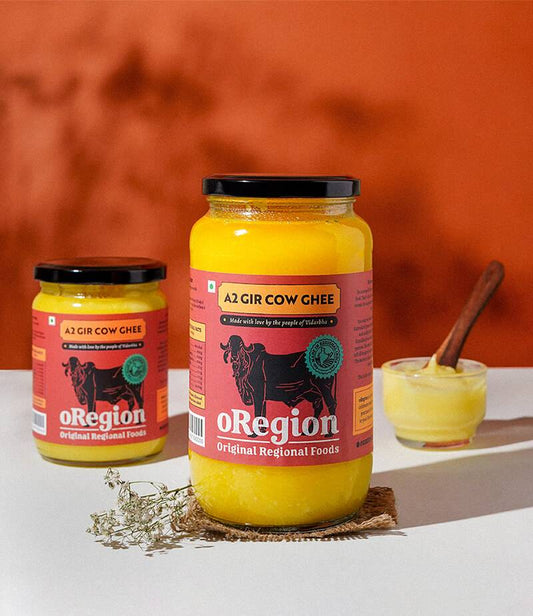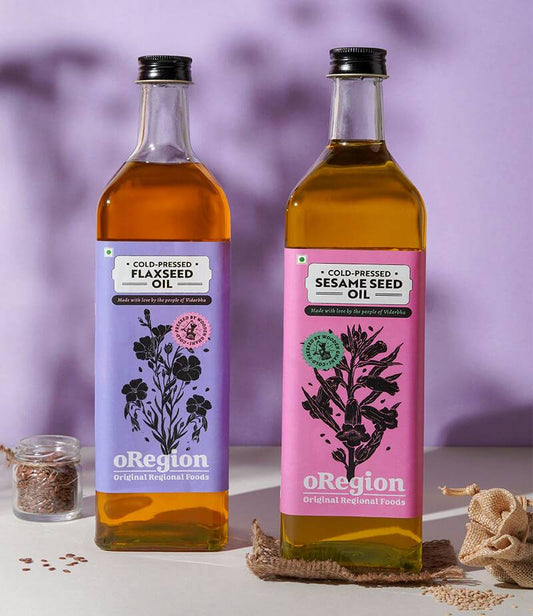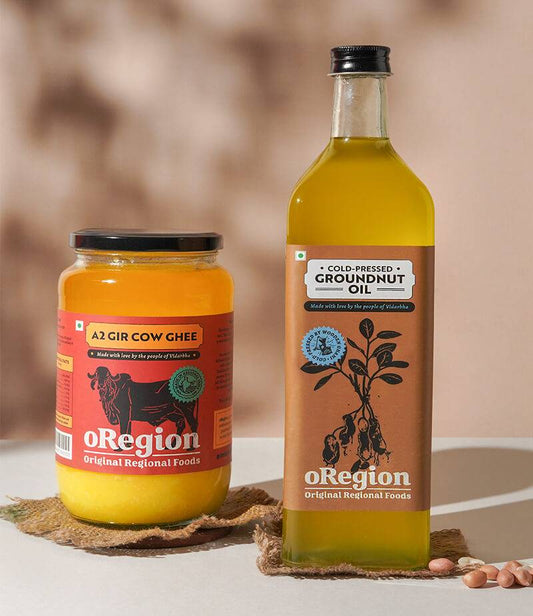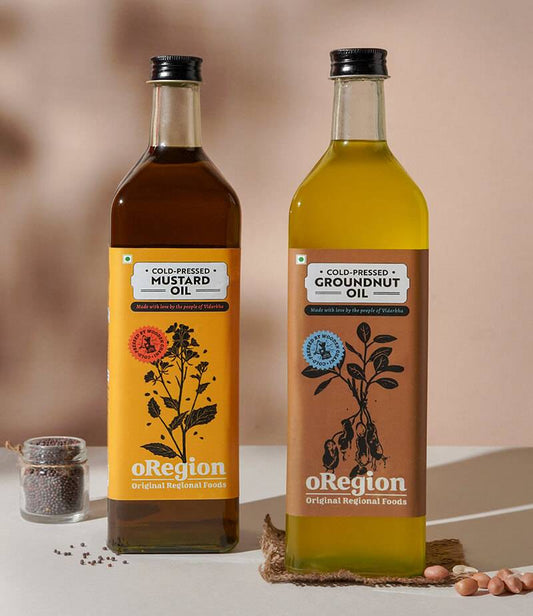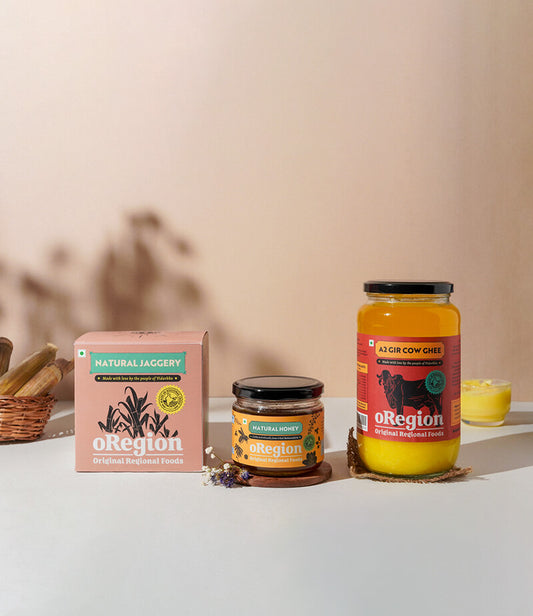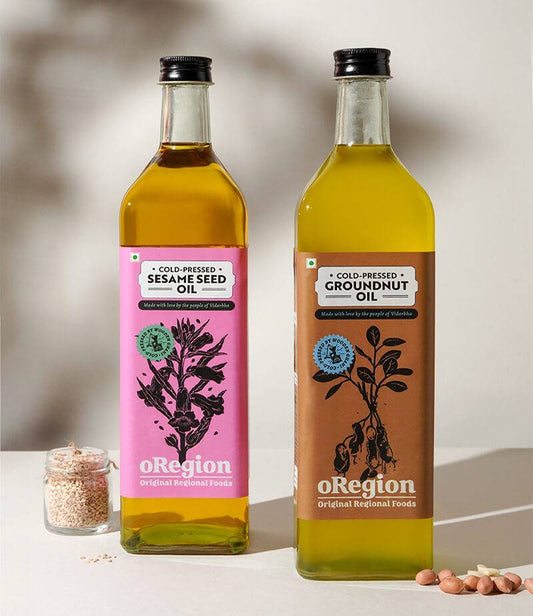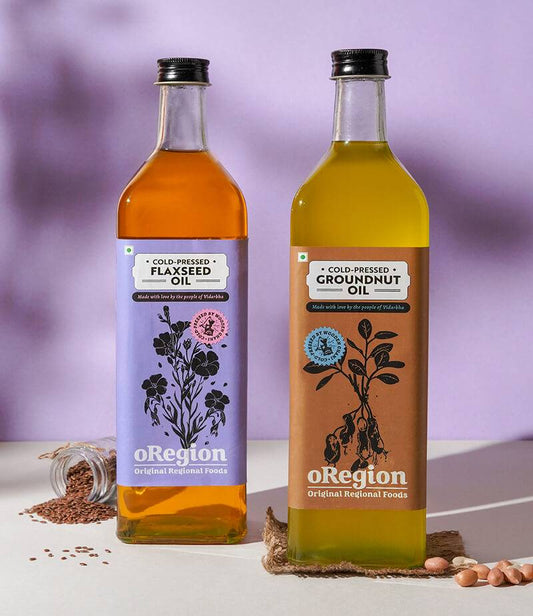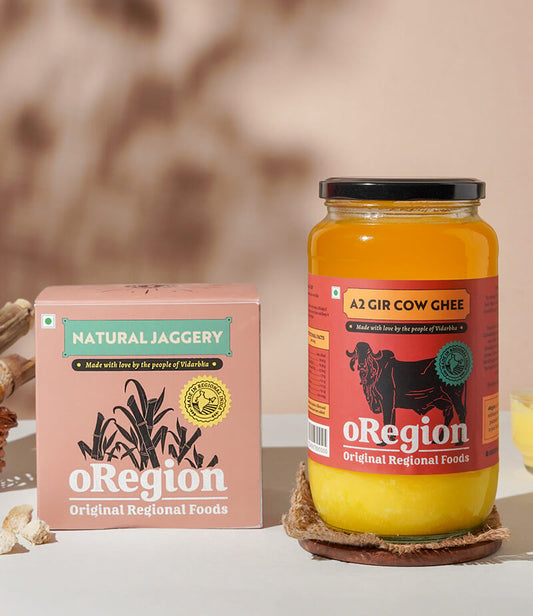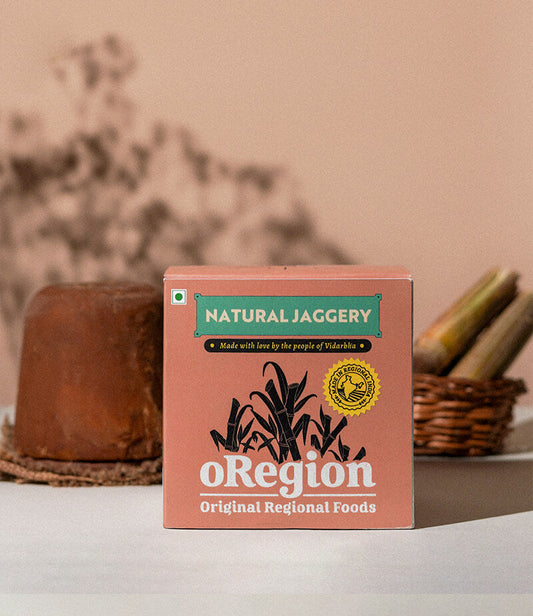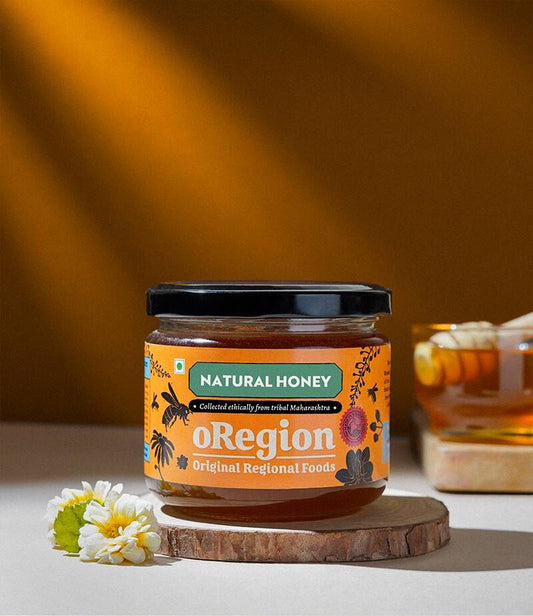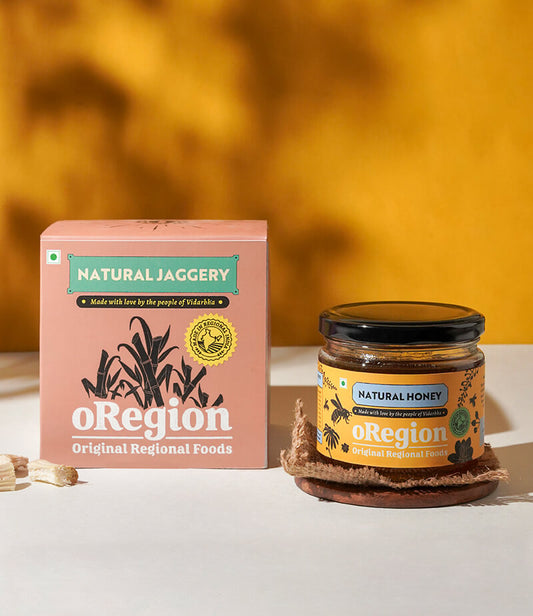
Important tips to Maximize the Shelf Life and Maintain the Purity of Cold Pressed Oils
By oregion foodsCold pressed oils are renowned for their nutritional value and purity, as they retain essential nutrients and antioxidants that are often lost in other processing methods. These oils are extracted at room temperature without adding heat or chemicals, preserving their natural qualities. However, to maximize the shelf life and maintain the purity of cold pressed oils, especially Cold Pressed Groundnut Oil, Cold Pressed Flaxseed Oil, Cold Pressed Mustard Oil, and Cold Pressed Sesame Oil from oRegion, it’s important to follow the right storage and handling practices. This article provides essential tips to help you get the most out of your cold pressed oils while keeping them fresh, pure, and safe for consumption.
Cold-Pressed Oils: PUFA vs. MUFA Stability
Cold-pressed oils are prized for their health benefits, but their susceptibility to oxidation varies. Polyunsaturated fatty acids (PUFA) found in some cold-pressed oils are more prone to oxidation than monounsaturated fatty acids (MUFA). This is due to the multiple double bonds in PUFA, which are more reactive to oxygen, light, and heat. In contrast, MUFA's single double bond offers greater stability and resistance to oxidative damage. For optimal freshness and health benefits, choose oils with higher MUFA content, such as those from oRegion, which prioritize stability and purity in their products.
Why Cold Pressed Oils Need Extra Care
Cold pressed oils, due to their unrefined nature, are more sensitive to heat, light, and oxygen than their refined counterparts. These elements can lead to oxidation, causing the oil to go rancid over time. Proper storage and handling are key to preserving the oil’s nutritional benefits and ensuring a longer shelf life. Oils like Cold Pressed Sesame Oil and Cold Pressed Flaxseed Oil are rich in PUFA(Polyunsaturated fatty acids) instead of MUFA and omega-3 fatty acids, making them more susceptible to degradation if not stored correctly.
1. Store in a Cool, Dark Place
The first and most important step to preserving the purity of cold pressed oils is to store them in a cool, dark place. Heat and light are two of the main enemies of Cold Pressed Oils. Exposure to sunlight or high temperatures can cause the oils to lose their nutritional value and turn rancid. Ideally, you should store these oils in a cabinet or pantry away from direct sunlight.
Tip: If your kitchen tends to get hot, consider storing your cold pressed oils in the refrigerator. However, some oils may solidify in cooler temperatures, which is normal. Simply let them sit at room temperature before use to return to their liquid state.
2. Use Dark Glass Bottles
Cold pressed oils like Cold Pressed Groundnut Oil , Cold pressed flaxseed oil and Cold Pressed Sesame Oil should be stored in dark glass bottles. These bottles help block out light and minimize exposure to oxygen, which can cause the oils to spoil faster. Plastic containers should be avoided as they may interact with the oil, affecting its purity and flavor.
oRegion ensures that all its cold pressed oils are packaged in high-quality, glass bottles to maintain the highest level of freshness and purity.
3. Keep the Bottle Tightly Sealed
After using cold pressed oils, make sure to tightly seal the bottle. This helps prevent air from entering the bottle, which can lead to oxidation. Leaving the bottle open for extended periods allows air to interact with the oil, which can reduce its shelf life and quality. Always secure the cap or lid immediately after each use to ensure the oil stays fresh.
4. Avoid Contamination
Contamination can occur if the oil comes into contact with foreign substances. Always use clean, dry utensils when scooping or pouring cold pressed oils to prevent moisture or impurities from getting into the bottle. Contaminants like water can cause mold or bacteria to grow, significantly reducing the shelf life of the oil.
For best results, avoid pouring oil directly from the bottle into hot pans, as this can introduce steam or moisture into the oil. Instead, pour the oil into a small container or use a dedicated oil dispenser.
5. Monitor Shelf Life and Expiry Date
Cold pressed oils typically have a shorter shelf life compared to refined oils because they are unrefined and contain natural nutrients that can degrade over time. For example, Cold Pressed Flaxseed Oil has a relatively short shelf life due to its high omega-3 content, which makes it prone to oxidation.
Always check the expiry date on the bottle and aim to use the oil within the recommended time frame. Consuming cold pressed oils past their expiration date can lead to rancidity, which may cause an unpleasant taste and smell. To maximize freshness, try to use the oil within a few months of opening.
6. Consider Refrigeration for Delicate Oils
Certain cold pressed oils, especially those high in omega-3 fatty acids like Cold Pressed Flaxseed Oil, benefit from refrigeration. Refrigeration helps slow down the oxidation process and prolong the oil's shelf life. Oils stored in the fridge may thicken or solidify, but this does not affect their quality. Just let them warm up to room temperature before using.
7. Choose High-Quality Cold Pressed Oils
The quality of the oil itself plays a big role in its shelf life and purity. oRegion offers a range of cold pressed oils, including Cold Pressed Groundnut Oil, Cold Pressed Mustard Oil, Cold Pressed Flaxseed Oil, and Cold Pressed Sesame Oil, all sourced from Zero Budget Natural Farms. The seeds are sun-dried and processed in a wooden ghani, a traditional oil extraction method that retains the oils’ natural flavor and nutrients.
By choosing high-quality cold pressed oils, you’re not only ensuring a longer shelf life but also benefiting from their rich nutritional content and unmatched purity.
8. Use Oil Quickly After Opening
Once opened, cold pressed oils should be used as quickly as possible to enjoy their freshness and nutritional benefits. While cold pressed oils can last for a few months if stored properly, it’s always best to use them within one to two months of opening for maximum flavor and quality.
9. Rotate Your Stock
If you frequently use different types of cold pressed oils in your cooking, such as Cold Pressed Mustard Oil for frying or Cold Pressed Sesame Oil for dressings, make sure to rotate your stock. Use the oldest oils first and avoid buying more than you can use within the oil’s shelf life. This ensures that none of your oils go to waste and you always have fresh oils on hand.
Why Choose oRegion’s Cold Pressed Oils?
At oRegion, we are committed to delivering the finest quality cold pressed oils. Our oils are made using sun-dried seeds from Zero Budget Natural Farms, ensuring that each bottle is filled with the purest and most nutrient-rich oil available. By using the wooden ghani method, we preserve the oils’ natural flavor and nutritional content, giving you a healthier alternative to refined oils.
Whether you choose Cold Pressed Groundnut Oil, Cold Pressed Flaxseed Oil, Cold Pressed Mustard Oil, or Cold Pressed Sesame Oil, you’re not just enjoying the taste of traditional oils—you’re supporting sustainable agriculture and natural farming practices.
Conclusion
Cold pressed oils are a valuable addition to any kitchen, offering a range of health benefits and superior taste. By following these tips on proper storage and handling, you can extend the shelf life of your cold pressed oils and ensure they remain pure, fresh, and nutritious. Remember to store them in a cool, dark place, use dark glass bottles, and avoid contamination for the best results.
